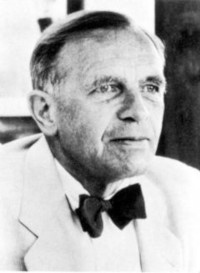Biographical essay
Wilhelm Röpke, economist and author, was an economist of the Austrian School and a key influence on Ludwig Erhard, the economic minister of West Germany following World War II. ... Along with Walter Eucken, Alexander Rüstow, and others, Röpke advised Ludwig Erhard on how to reform the West German economy following World War II. This group of Ordoliberals, as they came to be known, pushed for a substantially more market-oriented system than that which preceded it, along with a modest system of transfer payments consistent with modern welfare state goals. Röpke was later quite critical about the growth of such transfer programs.
Related Topic: Germany

